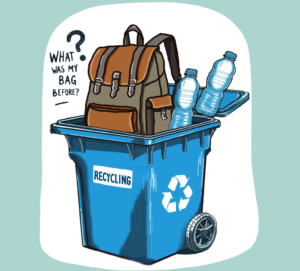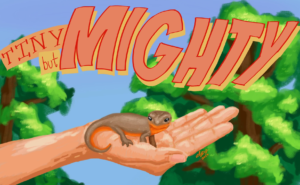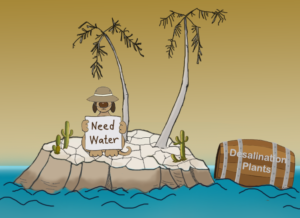
What is music?
According to the Cambridge Dictionary, music is “a pattern of sounds made by musical instruments, voices, or computers, or a combination of these, intended to give pleasure to people listening to it.”
However, in actuality, music is much more than that; it has the power to change moods, provide relaxation, heal, and so much more. It is something that can bring about emotions and connect people; it is a whole language within itself.
You can find music everywhere, from birds chirping to the wind blowing through trees. The way I see it, nature is a form of music itself. The earth can produce sounds in the form of waves, thunder, and rain–this type of music is known as biomusic, music formed by non-human beings. Music consists of many different types, and it can be classified into more than twenty different genres.
But, regardless of genre, music has the power to alter the mood of the listener. Music is a form of expression, and listening to music can be an out-of-body experience. We, humans, have found ways to form connections to music; for example, listening to “Dynamite” by Taio Cruz takes me back to an afterschool dance party at the YMCA of my elementary school.
I have been listening to music all my life, and I don’t think I ever will be able to define it. It means something different to every person, and that is what makes it so unique, but scientifically we can study music in terms of the effects that it seems to present. Music is an abstract concept, and each beholder defines it differently. Each person has their own musical preference; some listen to classical music, while others listen to rap. Music preference comes down to many factors, but basically, when you listen to something that you like, your brain produces a mixture of neurochemicals, including dopamine, oxytocin, and serotonin, that cause a feeling of pleasure (similar to that produced by the consumption of chocolate or alcohol). But how exactly does music affect the human brain?
How is the brain affected by music?
“Scientists have found that music stimulates more parts of the brain than any other human function” (The Power of Music by Elena Mannes). Like juggling, music perception activates both hemispheres of the brain resulting in the brain becoming more capable of processing information. Music stimulates everything from the frontal lobe to the hypothalamus, activating the broadest networks of the brain.
But things get a little bit more complicated because humans interact with music in various ways, from listening to music to singing and playing instruments.
In terms of listening, the brain is activated and sets of signals analyzing various elements of the music and then putting those pieces together to form a whole. It has been shown that in response to pleasurable music, the limbic and paralimbic areas of the brain are activated. These areas of the brain are related to euphoric rewards.
Listening to music stimulates the formation of certain neurotransmitters in the brain, such as dopamine and endorphins, triggering a response similar to that produced by chocolate or alcohol.
Dopamine is a neurotransmitter used by the nervous system to send messages between nerve cells and is associated with pleasure and reward. It is typically known as the ¨feel good¨ neurotransmitter. However, it is also involved in many other processes in our bodies: blood flow, digestion, executive functioning, memory and focus, motor control, pain processing, sleep, stress response, etc. (https://www.healthline.com/health/happy-hormone).
Endorphins can be described as natural pain killers, their production is typically triggered by stress or pain, but they can also be produced by listening to music. Additionally, they have many other benefits, such as regulating body rhythm and stabilizing the immune system.
Playing music has an even more significant positive impact on our brains. It can be regarded as the equivalent of a full-body workout, activating and strengthening even more parts of our brain. Musicians are found to have a larger corpus callosum, the band of nerve fibers used for the transfer of information between the right and left hemispheres of the brain. Additionally, musicians’ brains function superiorly to those of non-musicians; they perform better in regard to memory, auditory skill, and cognitive flexibility. “Musicians have bigger, better connected, more sensitive brains.” (Deane Alban).
If you are looking for a more detailed analysis of how different regions of the brain respond to music, check out https://www.ucf.edu/pegasus/your-brain-on-music/. This website offers a more in-depth analysis of the effect of music on particular parts of the brain, such as the frontal lobe, temporal lobe, and Broca’s area.
How does music apply in medicine?
The biggest way that music is utilized in medicine is through Music Therapy. According to the American Music Therapy Association, “Music Therapy is the clinical & evidence-based use of music interventions to accomplish individualized goals within a therapeutic relationship by a credentialed professional who has completed an approved music therapy program.” In simpler words, it is using music to achieve goals that are not necessarily musical.
Music therapy is a therapy that is done in some way, including music. This could be the music therapist playing and singing while the patient listens, the patient learning an instrument, the patient writing a song, etc. Music can also be used as a distraction. If someone is getting their blood drawn, listening to music could help take their mind off of the blood leaving their body. There are so many ways that music can be used through therapy. It is up to the creativity of the Music Therapist.
The benefits of music are wide-ranging, from releasing endorphins and relaxing a patient to helping reorient a patient suffering from Dementia or Alzheimers. The benefits could be more short-term, such as elevating the mood of a patient, or more long-term, helping improve a patient’s cognitive skills.
So much research is going on relating to the uses of music (particularly Music Therapy) in medicine, from treating premature babies to older patients with degenerative diseases. In the next post, I will go more into the research that has been or is currently being done.
Works Cited
“Music.” Cambridge Dictionary, Cambridge University Press, https://dictionary.cambridge.org/us/dictionary/english/music.
Bellwood, Peter. “Does Music Pre-Date Modern Man?” BBC Earth, 7 Sept. 2014, http://www.bbc.com/earth/story/20140907-does-music-pre-date-modern-man.
Doyle, Julia. “The Science Behind Music Taste.” Study Breaks, https://studybreaks.com/culture/science-behind-music-taste/.
Esaki, Naresh. “How Music Affects the Brain.” Hearing Institute of New Zealand, 2018, https://hearinginstitute.co.nz/wp-content/uploads/2018/03/How-Music-Affects-the-Brain.pdf.
“Music and the Brain.” Effects of Music Inquiry, https://effectsofmusicinquiry.weebly.com/music-and-the-brain.html.
“What Are the Effects of Music on the Brain?” Creative Soul Music Academy, https://www.creativesoulmusic.com/blog/what-are-the-effects-of-music-on-the-brain.
“The Healing Power of Music.” Hemaware, https://hemaware.org/mind-body/healing-power-music.
“Happy Hormone: What Is Dopamine?” Healthline, https://www.healthline.com/health/happy-hormone.
“The Powerful Effect of Music on the Brain.” The Tabernacle Choir, https://www.thetabernaclechoir.org/articles/the-powerful-effect-of-music-on-the-brain.html.
“Music and Medicine.” Effects of Music Inquiry, https://effectsofmusicinquiry.weebly.com/music-and-medicine.html.
“Healing with Music Therapy.” WebMD, https://www.webmd.com/a-to-z-guides/features/healing-with-music-therapy.
“About Music Therapy.” American Music Therapy Association, https://www.musictherapy.org/about/musictherapy/.
The views and opinions expressed are those of the authors and do not necessarily reflect nor represent the Earth Chronicles and its editorial board.




